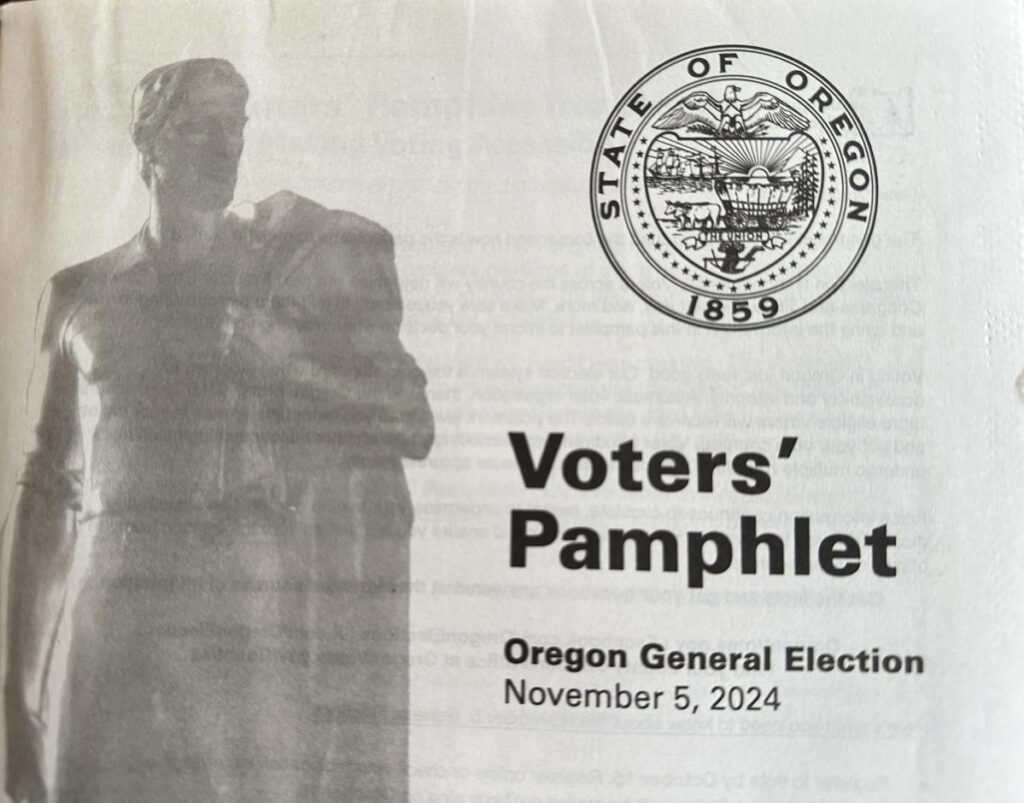On Thursday, the Oregon Secretary of State Elections Division shut down its phone lines due to an overwhelming number of calls generated by false claims regarding the state’s voters pamphlet. These claims alleged that the pamphlet did not include Republican nominee Donald Trump as a candidate for the upcoming election. However, the voters pamphlet explicitly lists Donald Trump as a candidate while also indicating that he opted not to provide a statement on why voters should support him. Despite the misinformation circulating online, Trump will indeed appear on the ballot in Oregon.
The misinformation originated from a post on the platform X, notably from the conservative account Libs of TikTok, which questioned why Trump was allegedly absent from the voters pamphlet. This post went viral, leading many to believe there was an issue with the election materials. The Oregon Republican Party quickly clarified that the absence of a statement from Trump was a deliberate decision made by his campaign earlier in the year, not a reflection of any oversight or conspiracy. Despite these clarifications, the rumors continued to spread on social media, causing significant disruption.
As the false claims proliferated, the Elections Division found its phone lines inundated with calls from concerned Oregonians seeking clarification. In response to this situation, Secretary of State LaVonne Griffin-Valade expressed her frustration, stating that the actions of those spreading misinformation were detrimental to the electoral process and to citizens seeking accurate information. The influx of calls created a backlog that hindered the Elections Division’s ability to assist those who genuinely needed help regarding the electoral process.
This incident highlights the growing concern over misinformation during election seasons, particularly in the context of social media where false narratives can spread rapidly. It demonstrates how easily misleading information can create confusion and lead to significant disruptions in governmental operations. Secretary Griffin-Valade’s comments underline the repercussions of allowing false claims to circulate unchecked, emphasizing that such actions contribute to a climate of distrust regarding electoral integrity.
The decision to temporarily shut down the phone lines was aimed at prioritizing the services for constituents who need legitimate assistance rather than responding to calls based on unfounded allegations. It serves as a reminder of the challenges faced by election officials in maintaining public confidence while combating the tide of misinformation. The increased vigilance required to ensure accurate dissemination of information is increasingly critical in the current political landscape.
Overall, this incident in Oregon illustrates broader issues related to misinformation and election integrity, a concern echoed in various states across the nation. As elections continue to be contentious subjects, the ability of political figures and officials to effectively communicate accurate information while countering false narratives will be crucial in fostering a transparent and trustworthy electoral environment.

